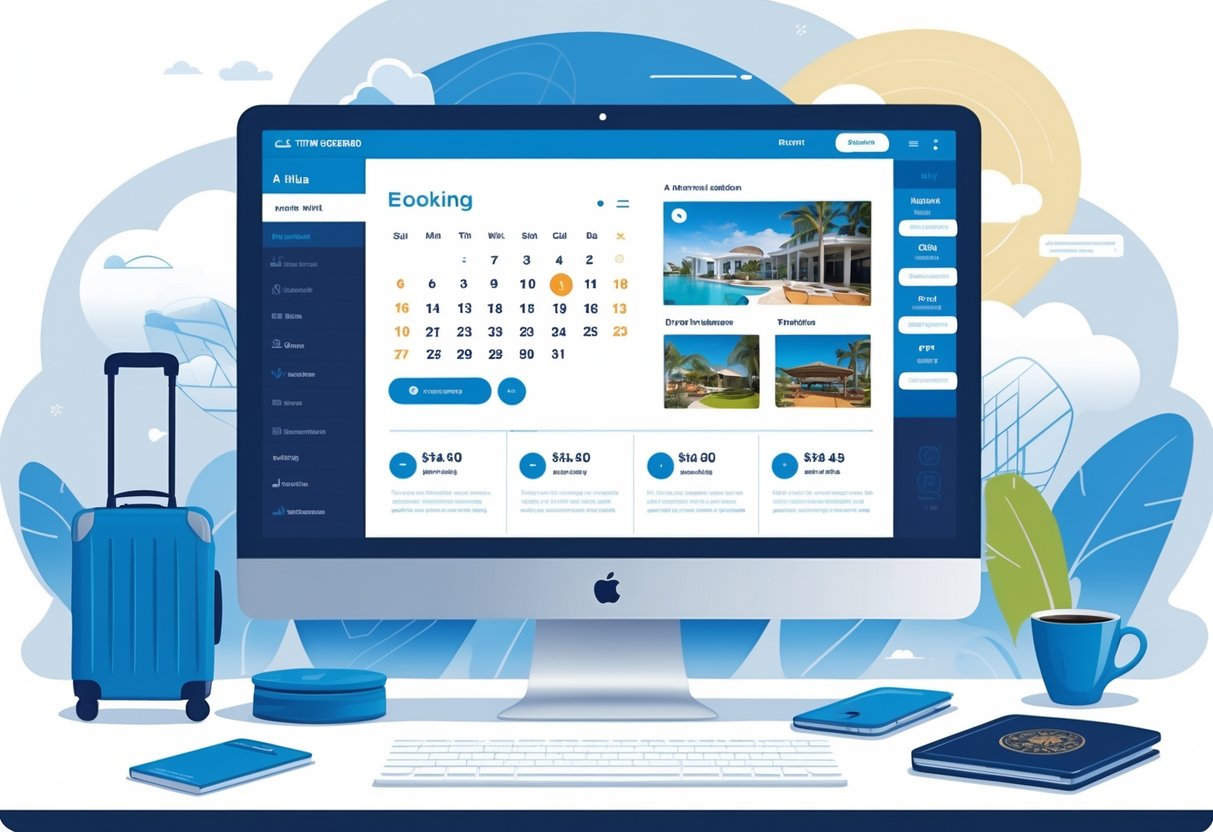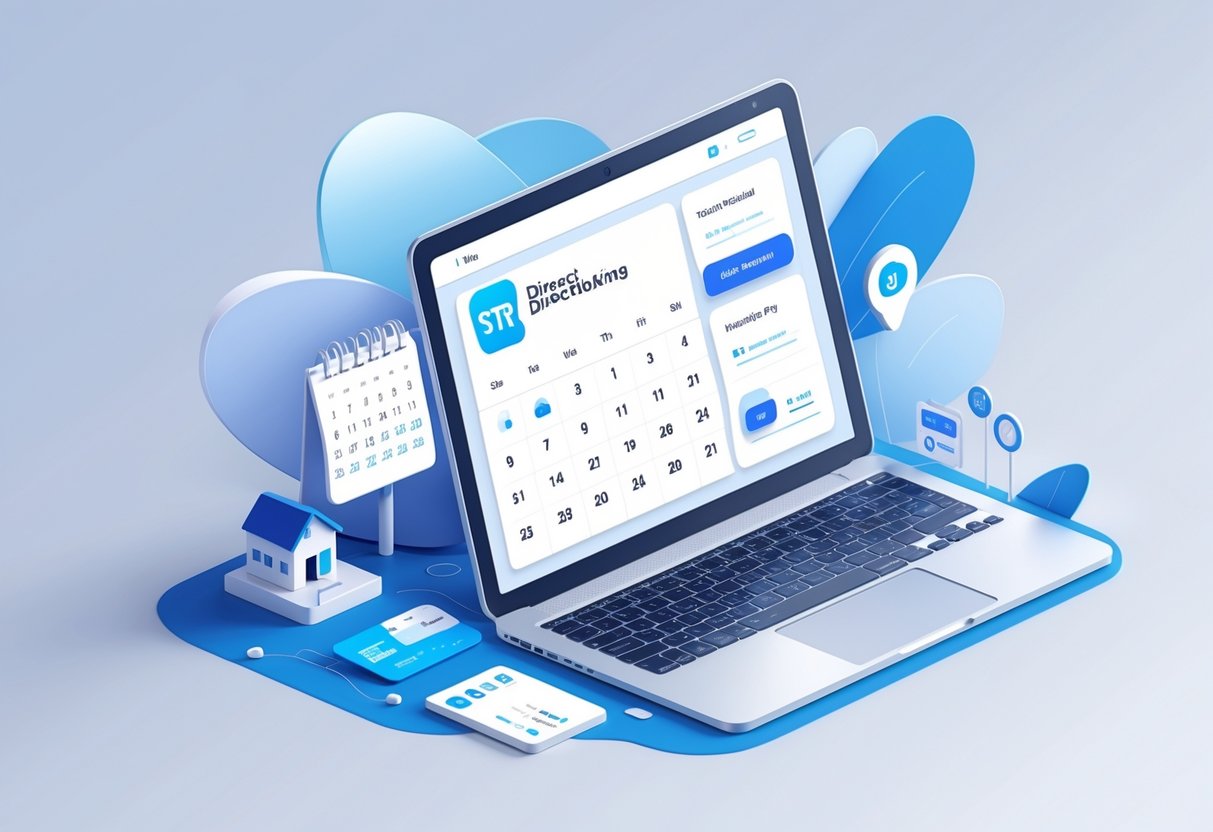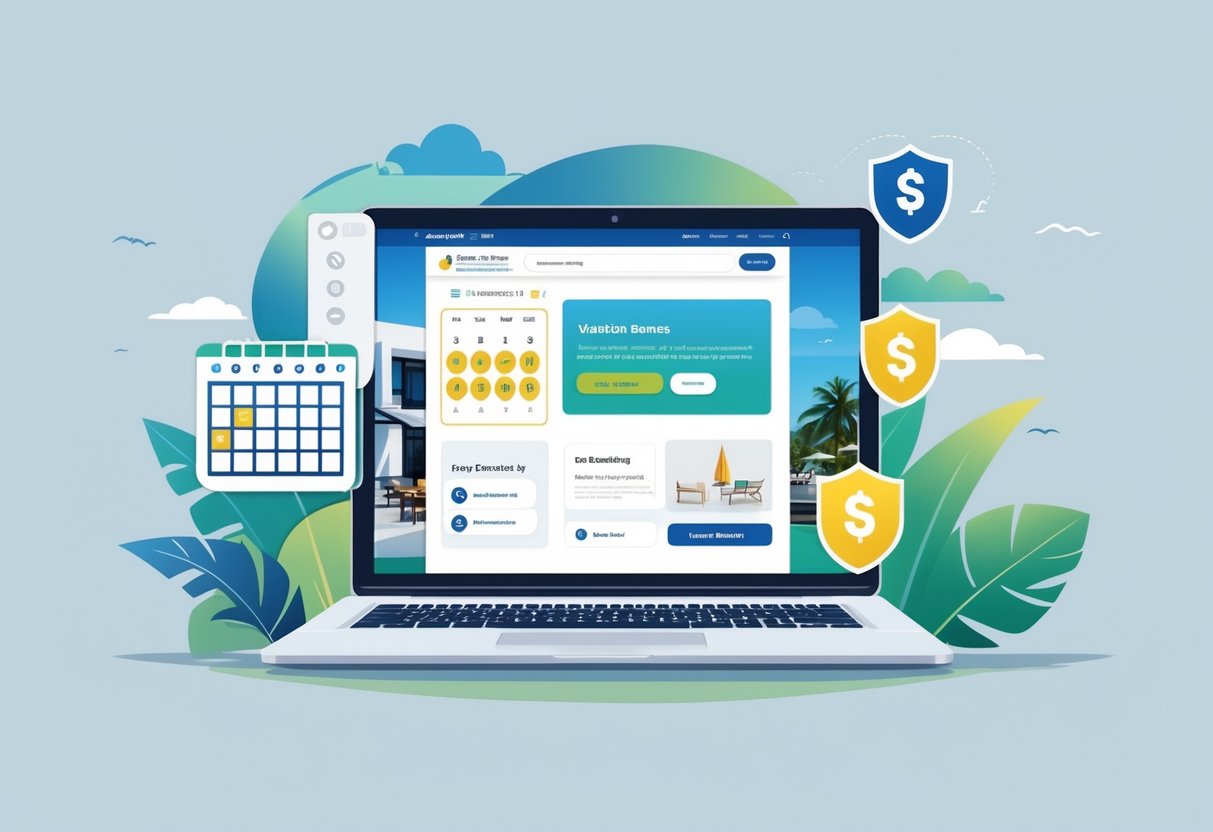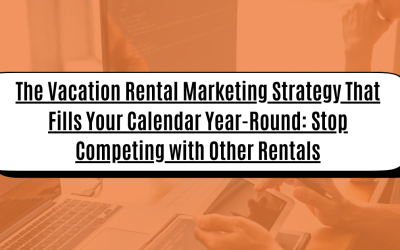Short-term rental owners are starting to see a straightforward way to boost their profits and break free from the grip of platforms like Airbnb and Vrbo. Direct booking websites for short-term rentals let property owners take reservations straight from guests—no commission fees, no middlemen.

A direct booking website can increase revenue by cutting out those commission fees that usually range from 3% to 15% on big booking sites. If you manage several properties, those savings really start to add up. Plus, you get full control over your brand, guest experience, and all your booking policies.
Building a direct booking site is way less complicated now, thanks to platforms with built-in calendar management, payment processing, and automated guest messaging. Professional property managers are using these tools to scale up and keep more profit on every reservation.
Key Takeaways
- Direct booking websites eliminate commission fees and hand property owners full control over the guest experience.
- You’ll want mobile optimization, secure payment processing, and real-time calendars.
- Getting direct bookings means mixing SEO, branded searches, and a handful of marketing channels.
What Is an STR Direct Booking Website?

An STR direct booking website lets owners accept reservations without going through third-party platforms. These sites give hosts full control over pricing, guest chats, and how they present their brand, while dodging commission fees.
Definition and Key Features
A direct booking website for short-term rentals is basically a custom site where guests can book directly with the owner. Unlike marketplace listings, these sites don’t rely on Airbnb, Booking.com, or any of those giants.
You’ll usually find:
- A booking engine with real-time availability
- Payment processing
- Property management integration
- Guest messaging tools
- Mobile-friendly design
Most direct booking websites for STR operators come with automated messages, dynamic pricing, and support for multiple properties. The booking process is usually quicker than on OTA platforms.
Some fancier features:
- Multi-currency support
- Promo codes and discounts
- Guest review integration
- SEO tools
Importance for Short-Term Rentals
Direct booking websites help owners rely less on outside platforms and keep more of their earnings. Managers can save 10-20% in commission fees every time someone books directly.
Building a professional direct booking website boosts your brand’s visibility. Guests who find you through branded searches are more likely to book than those just browsing big marketplaces.
Some standout benefits:
- Higher profit margins—no commissions eating into your earnings
- Total control over the guest journey
- Direct guest relationships and contact info
- Flexible pricing and cancellation terms
- More chances to build your brand
You can set your own rules without worrying about platform restrictions. Plus, you gather valuable guest data for future marketing.
How Direct Booking Differs from OTAs
OTAs act as the middleman between guests and owners, but direct booking websites cut them out completely. That changes the game for costs, control, and how you connect with guests.
Here’s how the commissions stack up:
| Aspect | Direct Booking | OTAs |
|---|---|---|
| Commission fees | 0% | 10-20% |
| Payment processing | 2-3% | Included in commission |
| Guest data access | Full access | Limited access |
| Policy control | Complete control | Platform restrictions |
STR direct booking websites do need more marketing effort to get people to your site. Owners have to invest in SEO, ads, and building their brand to draw in guests.
OTAs offer built-in traffic and search, but limit how much you can customize and take a big cut of every reservation.
Benefits of a Direct Booking Website for Vacation Rentals

Owners can skip commission fees that reach up to 20% on major platforms. Building relationships directly with guests becomes easier, too.
Reducing Booking Fees and Increasing Profit
Vacation rental owners lose a chunk of revenue to commission fees that range between 15% and 20% on Airbnb and Vrbo. That’s money right out of your pocket.
Direct bookings wipe out those fees. If you’re making $50,000 a year through OTAs, you could save $7,500 to $10,000 just by getting guests to book directly.
More ways to earn:
- Set your own prices—no platform rules
- Offer custom packages for longer stays or special events
- Give out seasonal discounts straight to your guests
- Skip those sneaky processing fees that platforms tack on
You can give guests better rates than on OTAs and still make more per booking. That’s a win for everyone.
If you have five properties, those savings could jump to $37,500–$50,000 a year.
Building Guest Trust and Brand Loyalty
A polished direct booking website gives you credibility that you just can’t get on an OTA. Guests see a real business, not just another random listing.
Owners can show off unique features, share area guides, and highlight glowing reviews—front and center.
Trust boosters:
- Quality photos and virtual tours
- Detailed descriptions and amenities
- Guest testimonials and ratings
- Clear contact info and policies
- Local tips and recommendations
Talking directly with guests builds real relationships. You can answer questions right away and give a more personal touch.
Repeat bookings are more common when guests have a good experience booking with you. These guests often stay longer and tell their friends.
Emailing past guests with offers and updates brings in more bookings, and you don’t have to pay for ads every time.
Gaining Independence from Airbnb and Vrbo
Depending on platforms is risky. Airbnb and Vrbo can change their rules, algorithms, or fees whenever they want.
If your account gets suspended or you break a rule, your income can vanish overnight. With a direct booking website, you’ve got a backup and more control.
Why independence matters:
- Set your own cancellation policies
- No algorithm changes messing with your visibility
- Talk directly to guests—no platform filters
- Total control over pricing and calendar
Multi-property managers especially benefit because they need consistent rules across their listings. Direct booking sites let you standardize everything and keep your branding tight.
You also keep all the guest data when bookings happen on your site. OTAs usually keep that info to themselves, making it harder to market to past guests.
SEO helps your properties show up in Google searches for local rentals. That means less need for paid ads or paying for better placement on OTAs.
Choosing the Right Direct Booking Platform
Your direct booking strategy really hinges on picking a platform that fits your property count and tech comfort level. You’ll want to look at website customization, booking engine features, channel management, and how well it all ties together.
Overview of Popular Website Builders
A few platforms lead the short-term rental direct booking space, each with their own strengths. Zeevou gives you automated PMS integration and dynamic website updates, which is great for folks with a bunch of properties.
Boostly focuses on slick WordPress sites built to convert. They handle the tech, so you can focus on getting bookings.
Hostaway is all about integrations and scaling. Their WordPress-based system lets you customize your branding and keeps calendars up to date.
Guesty uses AI tools for SEO and conversion tweaks. You’ll find automated messaging and pricing—handy for bigger operations.
Some platforms work best for individuals, while others are built for managers with multiple listings who need automation and integration options.
Comparing Lodgify, Uplisting, and Other Platforms
Lodgify is a great starter pick with drag-and-drop editing. It has built-in payment processing and supports multiple languages for international guests.
You can set up a site quickly, even if you’re not tech-savvy. The templates look professional and are easy to brand.
Uplisting keeps things simple with clean templates for direct booking. It can import your Airbnb listings and sync with OTAs to avoid double bookings.
Uplisting is best for smaller portfolios looking for affordable tools. There’s just one template, so you can’t customize much, but it’s consistent and easy to use.
What to consider:
- How complex setup is and how long it takes
- Subscription costs and transaction fees
- Available templates and how much you can tweak them
- Integration with your current tools
If you manage multiple properties, you’ll probably need more advanced features. For smaller setups, budget often drives the choice.
Evaluating Channel Manager and Booking Engine Features
A solid channel manager keeps your availability synced across all platforms. That stops double bookings and keeps your pricing consistent.
Must-have channel manager features:
- Real-time calendar syncing
- Automatic rate updates
- Handles booking confirmations
- Revenue reports and analytics
The booking engine is where guests actually book on your site. A good one makes a big difference for conversion rates.
Booking engine essentials:
- Mobile-friendly for phone users
- Secure payment options
- Instant booking confirmations
- Multi-currency support
Some platforms bundle channel management and booking engines, while others need you to connect separate tools. More moving parts can mean more headaches.
Look for platforms where these pieces work together smoothly. Tech hiccups during booking just drive guests away.
Understanding Booking Widgets and Integrations
Booking widgets let you add reservation tools to an existing website. Handy if you already have a web presence you like.
Widget tweaks might include:
- Brand-matching colors
- Calendar display choices
- How prices show up
- Search filters for dates and guests
Integrations matter for connecting your booking platform to the rest of your business. The popular ones are accounting, guest messaging, and maintenance scheduling tools.
Common integration types:
- Payment processors: Stripe, PayPal, or local options
- Communication: WhatsApp, SMS, email automation
- Analytics: Google Analytics, conversion tracking
- Property management systems: For day-to-day operations
Some platforms have built-in integrations, others rely on third-party add-ons. Built-in ones are usually more reliable and easier to maintain.
Think about what you need to integrate before choosing a platform. Missing a key integration can slow you down or cost more in extra software.
Essential Elements of a High-Converting Direct Booking Site
To really drive bookings, your vacation rental website needs three things: a smooth user experience, eye-catching visuals, and reliable payment processing.
User Experience and Mobile Optimization
Mobile optimization is the backbone of any high-converting direct booking website. Over half of travelers are booking on their phones.
Mobile must-haves:
- Loads in under 3 seconds
- Buttons that are easy to tap
- Simple, intuitive menus
- Responsive design for any screen
Booking should be quick—a guest should be able to reserve in three clicks or less.
Make sure your calendar is easy to read and use on small screens. Big, obvious date pickers help cut down on abandoned bookings.
Navigation tips:
- Clear categories for multiple properties
- Filters for dates, guests, and amenities
- “Book Now” buttons everywhere
- Contact info always just a tap away
Fast load times matter. Every extra second it takes to load a page can drop your conversion rate by 7%.
Strong Visuals and Property Listings
Professional photos drive booking decisions more than anything else. High-quality images really show off what makes each vacation rental special and help guests imagine themselves there.
Photo Requirements:
- At least 20 photos for every property
- Good lighting in every room
- Multiple angles for important spaces
- Outdoor areas and amenities included
Property descriptions need to highlight what’s unique—think specific amenities and what’s nearby. If you go generic, you just end up blending in with the crowd.
Essential Listing Elements:
- Detailed amenity lists (like Wi-Fi speed, parking, pet policy)
- How far local attractions are, in minutes
- Clear check-in and check-out instructions
- House rules and policies
Virtual tours make a difference. 360-degree photos or video walkthroughs help guests picture their stay and can boost booking confidence by 40%.
Guest reviews and ratings build trust. Put recent testimonials front and center on each property page—it helps nudge people over the edge.
Payment Processing and Security
Secure payment processing protects both owners and guests. Offering several payment options keeps guests happy and reduces the chances they’ll abandon their booking.
Required Payment Features:
- SSL certificates for data encryption
- PCI compliance standards
- Multiple currencies accepted
- Instant booking confirmation emails
Accepted Payment Methods:
- Credit cards (Visa, Mastercard, Amex)
- Digital wallets (PayPal, Apple Pay)
- Bank transfers for longer stays
- Buy-now-pay-later options
Put security badges and trust signals near payment forms. Showing recognizable certifications goes a long way toward reassuring guests.
Be upfront about pricing. Show all fees, taxes, and deposits before guests hit “book”—no one likes surprises.
Payment confirmations should include booking details, contact info, and check-in instructions. Automated confirmation emails make things easier for everyone.
Strategies for Increasing Direct Bookings
Building branded search traffic, keeping in touch with past guests, and leaning on data-driven insights are the backbone of growing direct bookings. These strategies cut down on platform fees and help owners keep more of their revenue.
SEO and Branded Search Traffic
Branded search traffic happens when guests look up your rental by name. That’s gold, since it means they’re skipping third-party sites entirely.
Property owners should focus on local SEO—use keywords like “luxury vacation rental in Nashville” or “beachfront short-term rental in Miami” wherever it makes sense.
Key SEO Elements:
- Location-based keywords in titles and descriptions
- Amenities featured in meta descriptions
- Guest reviews across all platforms
- Mobile-responsive website design
Blog posts about local attractions and events help properties climb search rankings. Create separate pages for each selling point.
A solid Google Business Profile means your rental pops up in local maps. Social media matters, too—regular Instagram and Facebook posts with location tags make it more likely guests will remember your name.
Leveraging Past Guest Relationships
Past guests are your best bet for repeat direct bookings. Email marketing to people who’ve already stayed with you works way better than cold emails.
Effective Guest Retention Tactics:
- Personalized discount codes for return visits
- Early access to popular dates
- Seasonal promos based on when they last visited
- Updates about property improvements
Automated email sequences keep you in touch without eating up your time. WiFi capture tools like Stayfi grab more guest emails, not just the main booker, which grows your database fast.
Text messaging works well for last-minute deals or special offers. Segment your guest lists by preferences, group size, and season to make those campaigns hit harder.
Utilizing Analytics for Continuous Improvement
Analytics show which marketing moves actually lead to direct bookings and which guests spend the most. Website analytics reveal how people behave, which pages they like, and where they drop off.
Essential Metrics to Track:
- Conversion rates for direct bookings by source
- Average booking value by channel
- Guest acquisition costs for each method
- Percentage of return visitors
Booking engine data helps you spot peak inquiry times and where people abandon the booking process. That info lets you tweak your site and adjust prices.
A/B testing things like booking buttons, photo layouts, or description styles gives you real feedback on what guests prefer. Heat maps show where people click and scroll on your pages.
Comparing revenue per booking between direct and platform bookings shows the real-world impact of your strategies.
Managing Multiple Properties and Scaling Your STR Business
Managing several properties takes more than just hustle. The right tools and a smart approach let you scale up without losing quality—or your sanity.
Short-Term Rental Management Tools
Modern property managers lean on comprehensive platforms to juggle multiple listings. Tools that handle guest messaging, cleaning schedules, pricing, and day-to-day operations make scaling feel a lot less overwhelming.
A property management system (PMS) acts as the nerve center. Most of these systems offer automated messaging, maintenance tracking, and financial reporting.
Essential tool categories:
- Channel managers to spread listings across sites
- Dynamic pricing software to maximize revenue
- Cleaning coordination platforms for housekeeping teams
- Guest communication tools for quick replies
Integration is a big deal. The best platforms sync everything, so you don’t risk double bookings or outdated calendars.
A lot of managers go for all-in-one solutions that handle bookings, guest chat, and finances in one place. It’s just easier than juggling a dozen different apps.
Features for Property Managers
Managing a bunch of properties means you need features that single-property hosts don’t. Portfolio-level reporting lets you see how all your listings are doing at a glance.
Critical features for scaling:
- Bulk editing to update lots of listings at once
- Team management tools for assigning tasks
- Multi-property dashboards for a portfolio overview
- Automated workflow triggers for booking events
Channel managers are basically required when you run more than one property. They push your listings out to Airbnb, Booking.com, Vrbo, and keep calendars in sync.
You’ll also want strong financial reporting. Good tools track revenue, expenses, and profit margins for each property and the whole portfolio.
Guest screening matters more as you grow. Automated verification and communication help keep guest experiences consistent, no matter which property someone books.
Handling Growth and Portfolio Diversification
Scaling an STR business takes solid systems and operational discipline. You need processes that work just as well with ten properties as with one.
Growth strategies:
- Geographic diversification to reach new markets
- Mixing property types (apartments, houses, etc.)
- Expanding revenue models with multi-unit listings
- Building up direct bookings to rely less on platforms
Multi-unit selling lets STR hosts boost revenue and occupancy by listing whole properties and individual rooms. That way, you appeal to different types of guests.
Before you add new properties, get your systems in order. Set up cleaning routines, maintenance plans, and guest messaging workflows that scale.
Investing in tech pays off as your portfolio grows. Automated pricing, guest messaging, and maintenance scheduling save a lot more time and money when you run several properties.
Frequently Asked Questions
Property owners often look for real-world advice on setting up and improving their direct booking sites. The most common questions revolve around account setup, boosting conversions, comparing platforms, pricing, and must-have features.
How can I create an account on a leading direct booking website?
Most direct booking platforms ask for basic business details when you sign up. You’ll need to provide property info, contact details, and payment preferences.
Setup usually takes 10-15 hours, but most of that time goes into connecting your property management software. The website itself comes together pretty quickly.
Platforms like Lodgify and Hospitable offer step-by-step setup guides. They walk you through connecting booking engines, payment processing, and listing your properties.
What are the best practices for increasing conversions on a direct booking website?
Photos matter—a lot. Detailed descriptions, clear pricing, and an up-to-date calendar help guests decide faster.
Live chat and video calls let you answer guest questions before they book. That extra bit of reassurance can really help.
Teaming up with local restaurants or tour guides adds value. Referral incentives and direct booking links in confirmation emails encourage repeat business.
A mobile-friendly site is non-negotiable. Fast load times and easy navigation keep guests from giving up halfway through booking.
Where can I find reliable reviews of top direct booking platforms?
Industry sites regularly post direct booking platform comparison guides. They break down features, pricing, and user experiences.
Property management blogs often dive deep into platform pros and cons. They compare booking engines, payment processing, and support quality.
User forums and STR Facebook groups are full of honest feedback. Hosts swap stories about setup headaches and what works long-term.
Sites like Capterra and G2 collect verified user reviews. You can filter by features, pricing, or property type to find what fits.
What are the main differences between free and paid direct booking website services?
Free platforms usually limit customization and slap their own branding on your site. They might cap the number of properties or bookings you can have.
Paid services offer custom domains, unlimited bookings, and more advanced features. You’ll get better design templates, built-in payment processing, and detailed analytics.
Commission structures vary. Some free platforms charge booking fees, while paid ones might offer commission-free transactions.
Customer support is a big difference. Paid plans usually come with priority support, phone help, and sometimes a dedicated account manager.
How do website builders cater specifically to direct booking functionality?
STR website builders come with integrated booking engines and calendars. They sync with your property management system to avoid double bookings.
Custom STR booking sites include secure payment processing made for vacation rentals. They handle deposits, cleaning fees, and taxes automatically.
These platforms offer rental-focused templates with photo galleries and amenity highlights. Features like instant booking, inquiry forms, and guest messaging are standard.
Multi-property tools let you show off several listings on one site. Advanced builders offer channel management, so you can take bookings from multiple platforms all at once.
What features should I look for when choosing software to manage direct bookings?
You’ll want a real-time availability calendar that syncs across every booking channel. That way, you’re not constantly updating things by hand or risking double bookings.
Automated email confirmations are a lifesaver, too. Pre-arrival instructions sent out automatically? That’s one less thing to worry about.
Make sure payment processing handles multiple currencies and payment methods. Honestly, if the system can’t securely store guest info or process refunds, it’s just not worth the headache.
Channel management tools should distribute your listings everywhere you want them, and they need to prevent overbookings. If you already use property management software, look for something that integrates smoothly, especially if you manage more than one property.
Analytics and reporting features should track where bookings come from, conversion rates, and how much revenue you’re actually making. Those insights can really help you tweak your pricing and marketing, even if the numbers sometimes feel a little overwhelming.




0 Comments